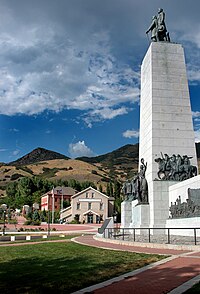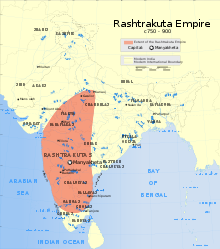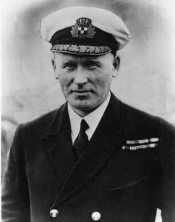Portal:History
The History Portal
History (derived from Ancient Greek ἱστορία (historía) 'inquiry; knowledge acquired by investigation') is the systematic study and documentation of the human past. History is an academic discipline which uses a narrative to describe, examine, question, and analyse past events, and investigate their patterns of cause and effect. Historians debate which narrative best explains an event, as well as the significance of different causes and effects. Historians debate the nature of history as an end in itself, and its usefulness in giving perspective on the problems of the present.
The period of events before the invention of writing systems is considered prehistory. "History" is an umbrella term comprising past events as well as the memory, discovery, collection, organization, presentation, and interpretation of these events. Historians seek knowledge of the past using historical sources such as written documents, oral accounts or traditional oral histories, art and material artefacts, and ecological markers.
Stories common to a particular culture, but not supported by external sources (such as the tales surrounding King Arthur), are usually classified as cultural heritage or legends. History differs from myth in that it is supported by verifiable evidence. However, ancient cultural influences have helped create variant interpretations of the nature of history, which have evolved over the centuries and continue to change today. The modern study of history is wide-ranging, and includes the study of specific regions and certain topical or thematic elements of historical investigation. History is taught as a part of primary and secondary education, and the academic study of history is a major discipline in universities.
Herodotus, a 5th-century BCE Greek historian, is often considered the "father of history", as one of the first historians in the Western tradition, though he has been criticized as the "father of lies". Along with his contemporary Thucydides, he helped form the foundations for the modern study of past events and societies. Their works continue to be read today, and the gap between the culture-focused Herodotus and the military-focused Thucydides remains a point of contention or approach in modern historical writing. In East Asia a state chronicle, the Spring and Autumn Annals, was reputed to date from as early as 722 BCE, though only 2nd-century BCE texts have survived. The title "father of history" has also been attributed, in their respective societies, to Sima Qian, Ibn Khaldun, and Kenneth Dike. (Full article...)
Featured picture
Did you know (auto generated)

- ... that 25 Water Street was designed to blend in with historic brick buildings that no longer exist?
- ... that the U.S. National Firefighter Registry will match state cancer data with voluntarily collected work history data from firefighters?
- ... that the Oxtongue River, historically a canoe route for indigenous people, is still used for recreational canoeing?
- ... that Songs and Flowers of the Wasatch represented a shift in Mormon history toward a "socially-accepted American cultural and religious heritage", according to historian Jennifer Reeder?
- ... that the first Russian feature film, Stenka Razin, depicts the historical Cossack leader throwing a princess into the Volga?
- ... that the bankruptcy of Penn Central in 1970 was the largest in American history at the time?

Jürgen Ehlers (German: [ˈjʏʁɡn̩ ˈʔeːlɐs]; 29 December 1929 – 20 May 2008) was a German physicist who contributed to the understanding of Albert Einstein's theory of general relativity. From graduate and postgraduate work in Pascual Jordan's relativity research group at Hamburg University, he held various posts as a lecturer and, later, as a professor before joining the Max Planck Institute for Astrophysics in Munich as a director. In 1995, he became the founding director of the newly created Max Planck Institute for Gravitational Physics in Potsdam, Germany.
Ehlers' research focused on the foundations of general relativity as well as on the theory's applications to astrophysics. He formulated a suitable classification of exact solutions to Einstein's field equations and proved the Ehlers–Geren–Sachs theorem that justifies the application of simple, general-relativistic model universes to modern cosmology. He created a spacetime-oriented description of gravitational lensing and clarified the relationship between models formulated within the framework of general relativity and those of Newtonian gravity. In addition, Ehlers had a keen interest in both the history and philosophy of physics and was an ardent populariser of science. (Full article...)
On this day
January 25: Feast day of Saint Gregory of Nazianzus (Eastern Christianity) and Dwynwen (Wales); Tatiana Day (Russia)
- 1515 – Francis I, a great-great-grandson of Charles V, was crowned king of France in the Reims Cathedral.
- 1725 – Privateer Amaro Pargo was declared a hidalgo, a member of the Spanish nobility.
- 1765 – Port Egmont, the first British colony in the Falkland Islands, was founded.
- 1890 – American journalist Nellie Bly (pictured) completed a circumnavigation of the globe by land and sea in a then-record-breaking 72 days.
- 1998 – The Liberation Tigers of Tamil Eelam detonated a truck bomb at the sacred Buddhist Temple of the Tooth in Kandy, killing 17 people.
- Mihrimah Sultan (d. 1578)
- Anna Gardner (b. 1816)
- Jane Bathori (d. 1970)
- Seunghee (b. 1996)
Selected quote
In truth history does not belong to us but rather we to history.
— Hans-Georg Gadamer, German philosopher
Related portals
More Did you know...
- ... that Giovanni de Ventura, a plague doctor who may have worn a beak doctor costume (pictured), was restricted by a covenant to treat only infectious patients? In the nose of the mask, there were types of plants that were used to filter the sickness from the wearer.
- ... that in some archaic Greek alphabets, an Ε could look like a Β, a Β like a C, a Γ like an Ι, an Ι like a Σ, or a Σ like an Μ?
- ... that the Chinese government has published a list of sixty-four important cultural relics that are forbidden to be exhibited outside of China?
- ... that the 1886 novel Albertine expedited the abolition of public prostitution in Norway?
- ... that Carl Sagan worked with the US Air Force on detonating a nuclear device on the Moon?
- ... that Olympic gold medals have been made out of silver, jade, and glass?
- ... that in 1945 a Japanese battalion was rearmed to serve alongside the British 5th Parachute Brigade in the Far East?
- ... that Solomon was accidentally castrated as an infant?
Topics
Categories

History • By period • By region • By topic • By ethnic group • Historiography • Archaeology • Books • Maps • Images • Magazines • Organizations • Fictional • Museums • Pseudohistory • Stubs • Timelines • Chronology • People • Wikipedia historians
WikiProjects
![]() WikiProject History •
Ancient Near East • Australian History • Classical Greece and Rome • Dacia • Former countries • History of Canada • Chinese history • European history • Heraldry and vexillology • Indian history • Jewish history • Medieval Scotland • Mesoamerica • Military history • Middle Ages • History of Science
WikiProject History •
Ancient Near East • Australian History • Classical Greece and Rome • Dacia • Former countries • History of Canada • Chinese history • European history • Heraldry and vexillology • Indian history • Jewish history • Medieval Scotland • Mesoamerica • Military history • Middle Ages • History of Science
WikiProject Time • Days of the Year • Years
WikiProject Biography • Composers • Political figures • Saints • United States Presidents
Things you can do
 |
Here are some tasks awaiting attention:
|
Associated Wikimedia
The following Wikimedia Foundation sister projects provide more on this subject:
-
Commons
Free media repository -
Wikibooks
Free textbooks and manuals -
Wikidata
Free knowledge base -
Wikinews
Free-content news -
Wikiquote
Collection of quotations -
Wikisource
Free-content library -
Wikiversity
Free learning tools -
Wiktionary
Dictionary and thesaurus























































